Tip of the Day
ENCOURAGEMENT FOR PARENTING DURING A PANDEMIC
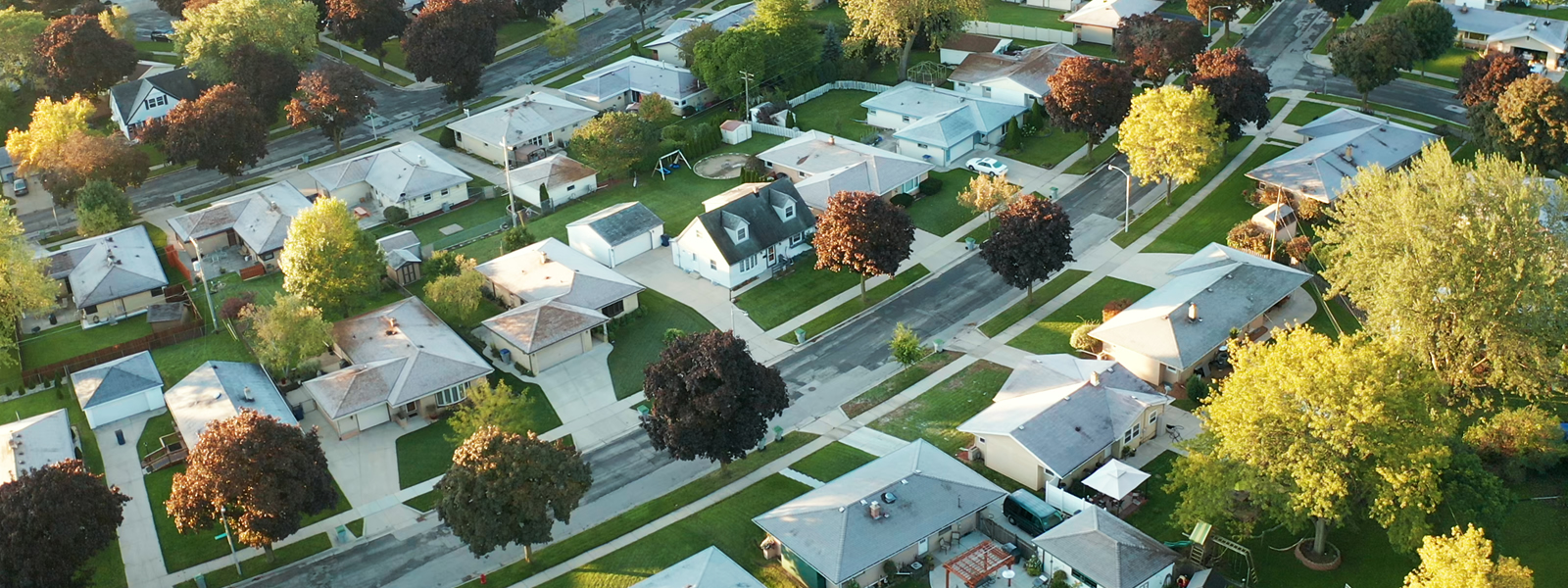
Once the world recognized the magnitude of COVID-19, families sheltered in-home to protect themselves and their neighbors. Schools closed—but children were still directed to complete school lessons at home so they could complete the 2019-20 school year. This presented an unprecedented time for children, parents, and teachers. Children missed their friends. At-home schooling added to parents’ responsibilities—especially since some parents began working from home. Some parents continued to work outside the home (and couldn’t be at home to supervise school work) and some parents were laid off work (and became unduly worried about paying bills. We became concerned for parents’ health and well-being—especially as they began to take-on athome schooling responsibilities!
We are researchers (psychologists, teachers, parents, and grandparents) who want to support parents’ efforts in at-home schooling—positive psychology in the form of helpful hints to guide and encourage parents’ appreciation of this unprecedented pandemic as a unique opportunity for them, their children, and their families at large.
Here you will find our series of Parent Tips in the form of easily digestible social media messages that help provide hopeful perspective beyond the new-normal of heightened stress related to at-home schooling. From our perspective, this COVID-19 pandemic has given rise to new opportunities for parents to realize their influence on the academic achievement of their children.
Tip #1: Parents Matter
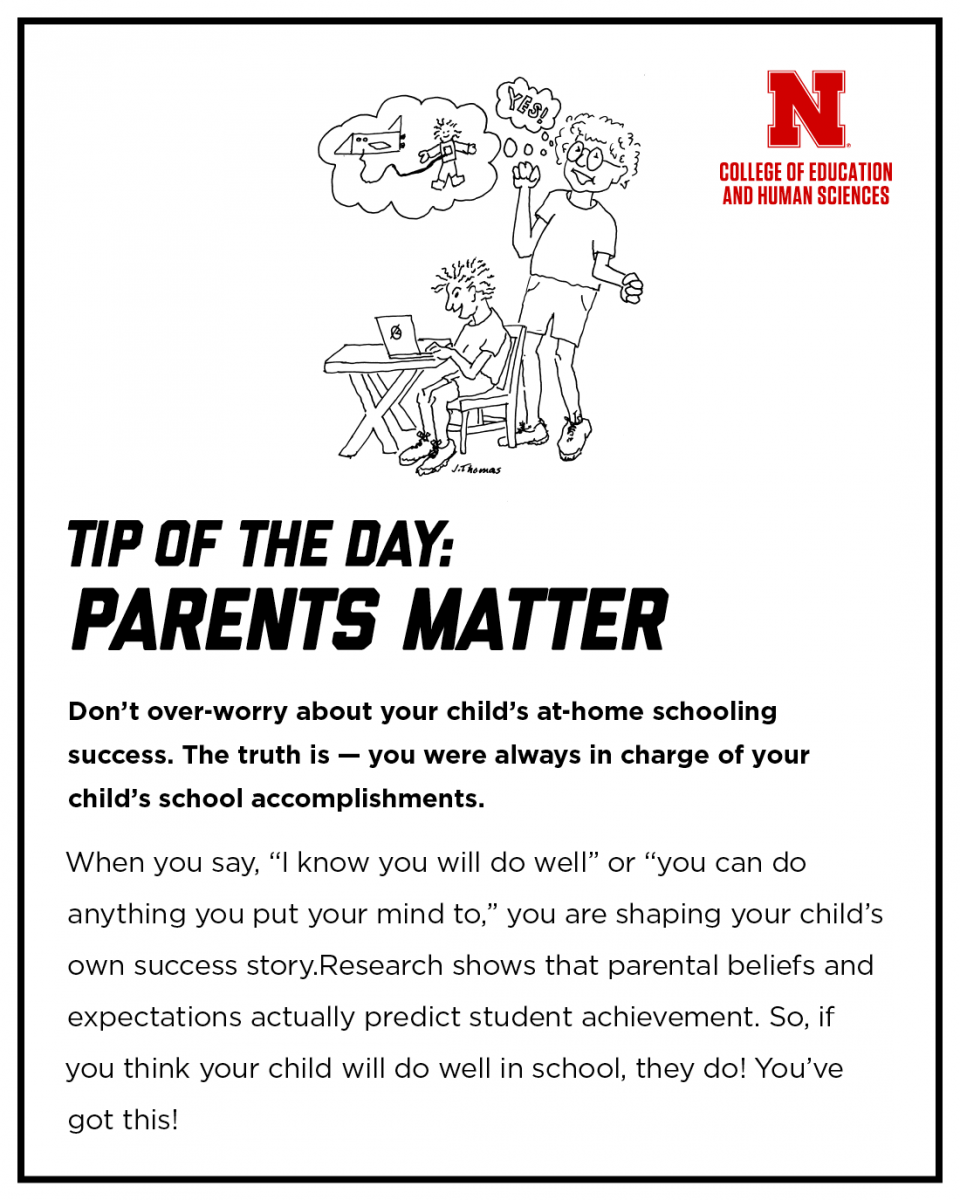
Thomas, J., Utley, J., Hong, S., Korkmaz, H., & Nugent, G. (2020). Parental influence on STEM learning: A review of the research. In Johnson, C. C., Mohr-Schroeder, M., Moore, T., & English, L (Eds.), Handbook of Research on STEM Education. Routledge (Taylor and Francis Group).
Tip #2: Choose a Passion Project
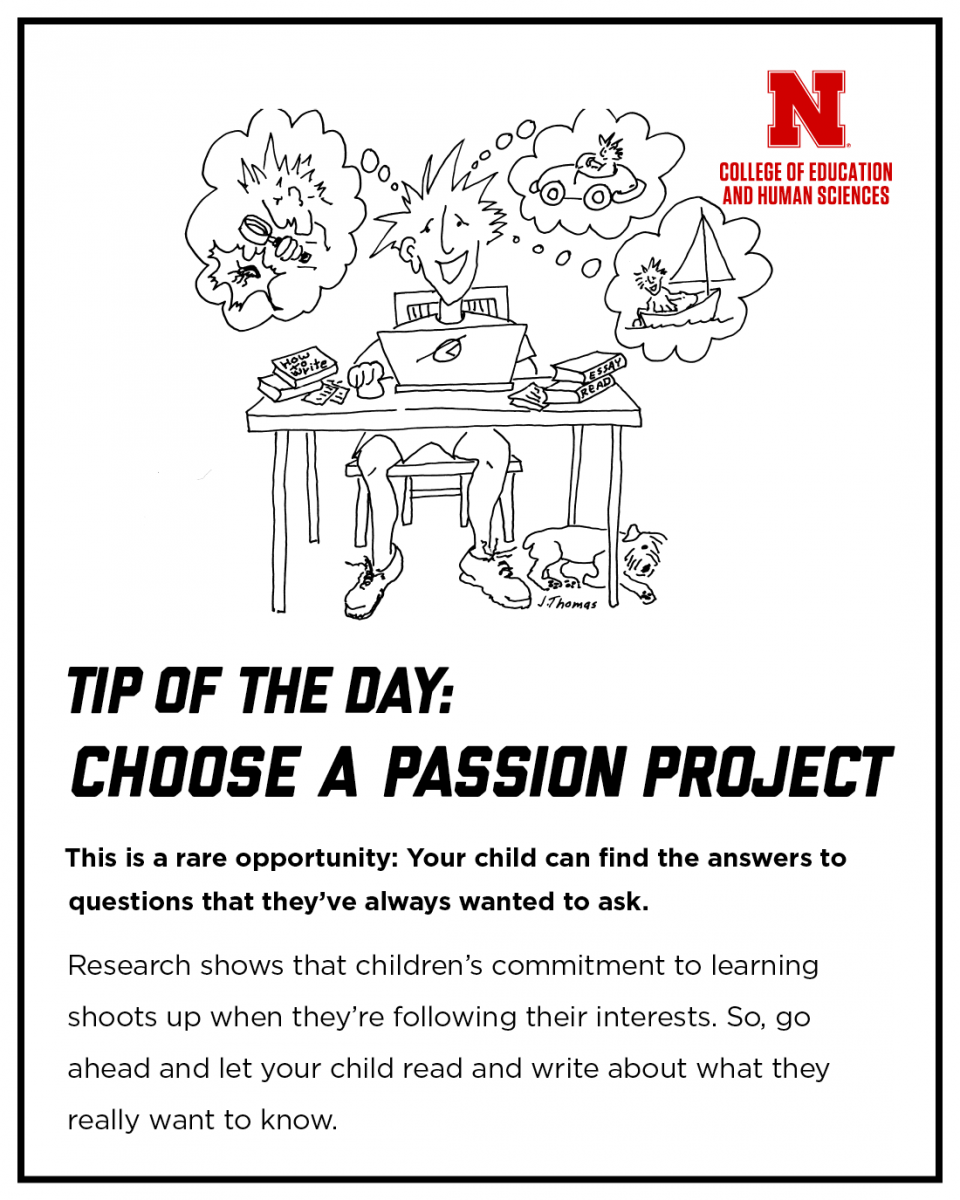
Bear, G. G. (2010). School discipline and self-discipline:A practical guide to promoting prosocial student behavior. New York: Guilford.
Tip #3: Kids Need Their Friends
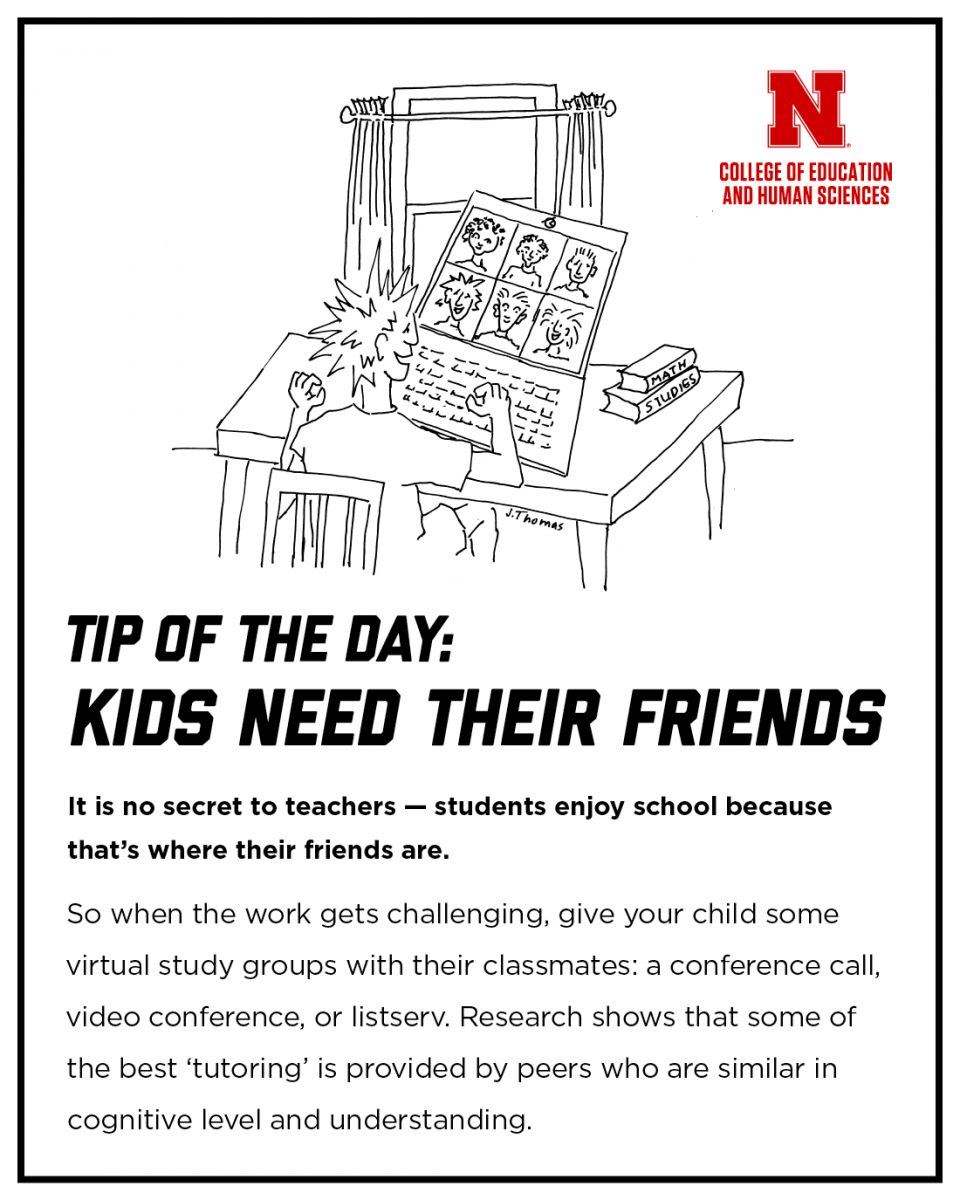
Doll, B. & Brehm, K. (2010). Resilient playgrounds. New York: Routledge.
Tip #4: Get Outside
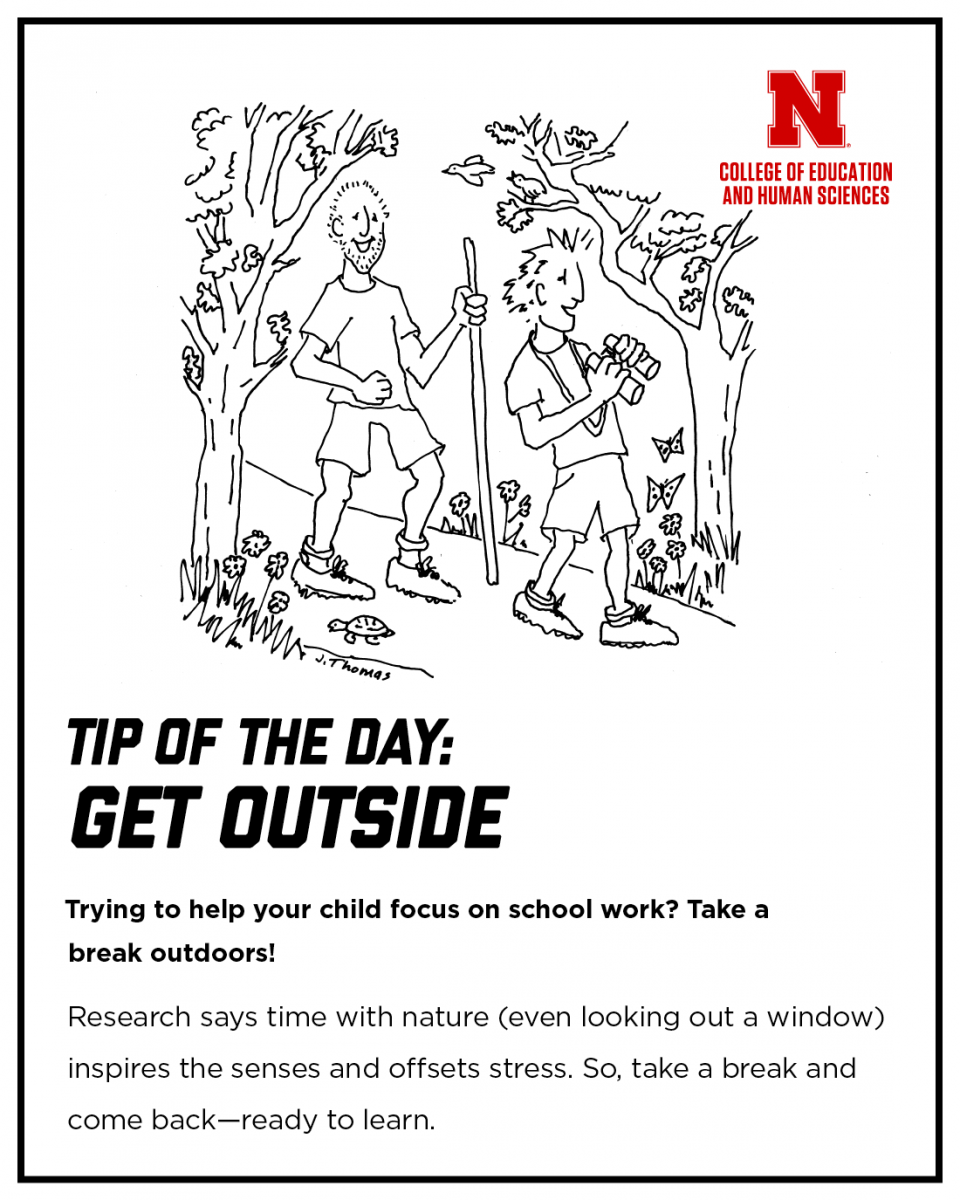
Louv, R. 2011). The nature principle: Human restoration and the end of nature-deficit disorder. Algonquin Books.
Tip #5: Get Good Rest
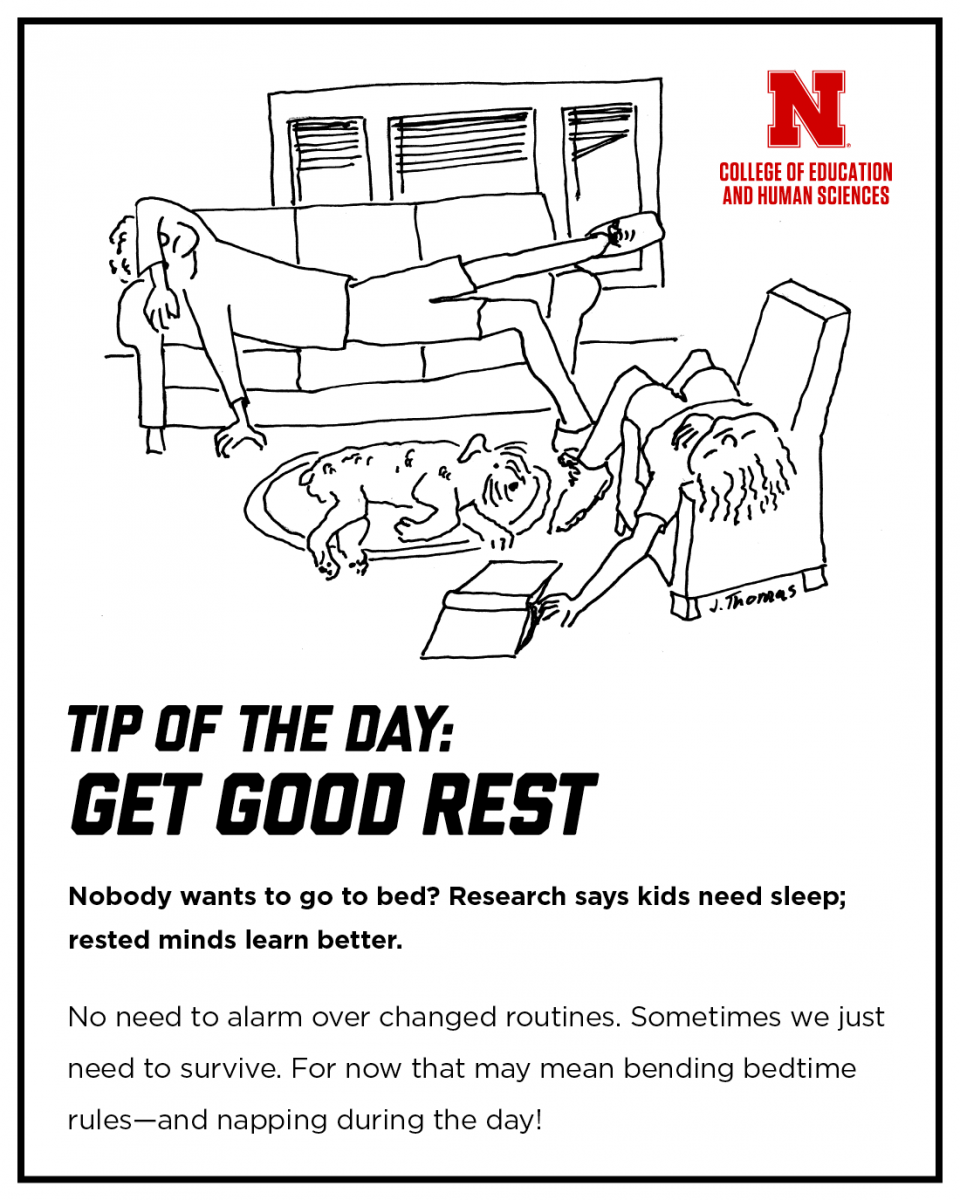
Canapari, C. (2019). It’s never too late to sleep train: The low-stress way to high-quality sleep for babies, kids, and parents. New York: Rodale Books.
Tip #6: Work Out the Wiggles
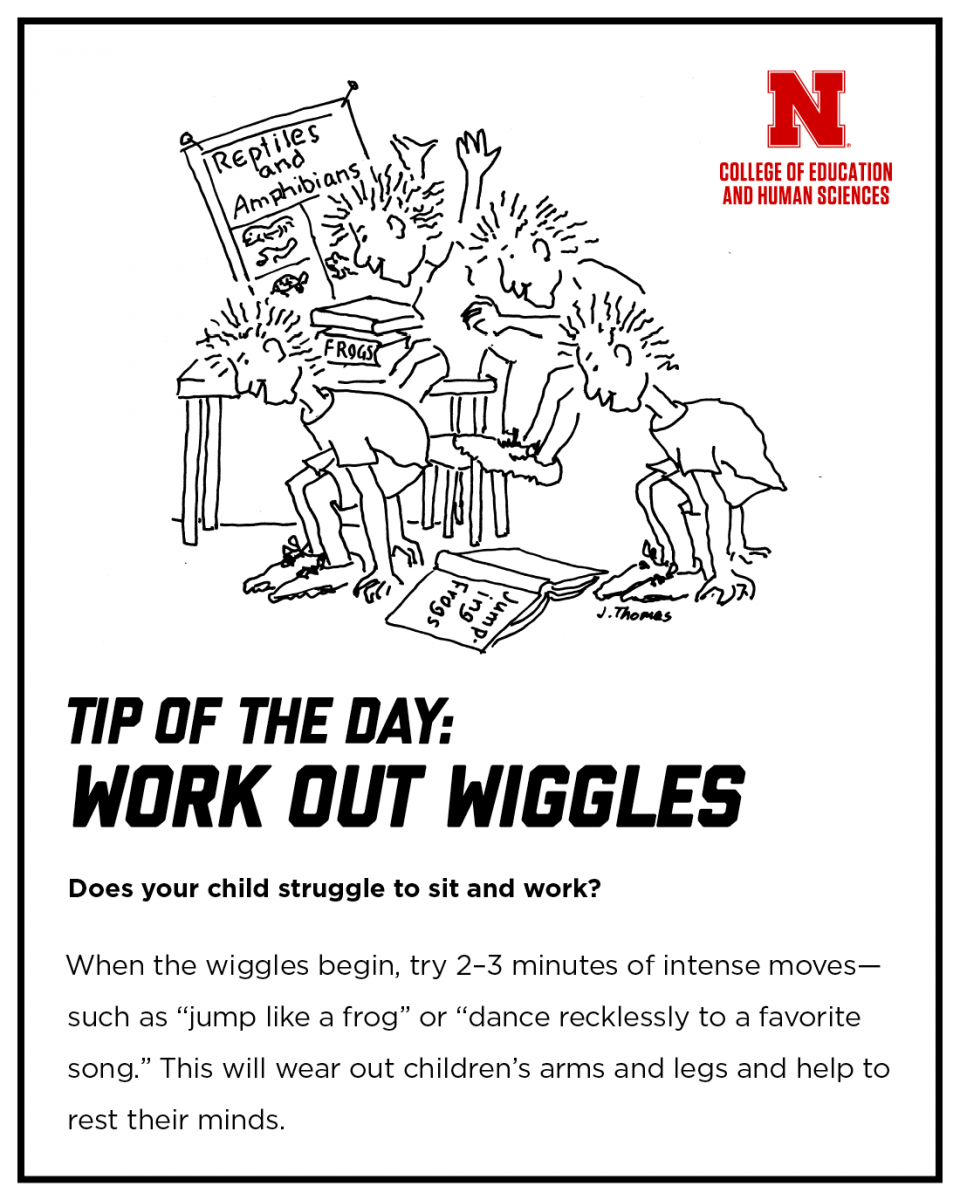
Maykel, C., & Minkos, M. (2020). Physical activity interventions in the school setting. In C. Maykel & M. A, Bray (Eds.), Promoting mind-body health in schools: Interventions for mental health professionals. (pp. 187-200). Washington, DC: American Psychological Association.
Tip #7: Take a Brain Break
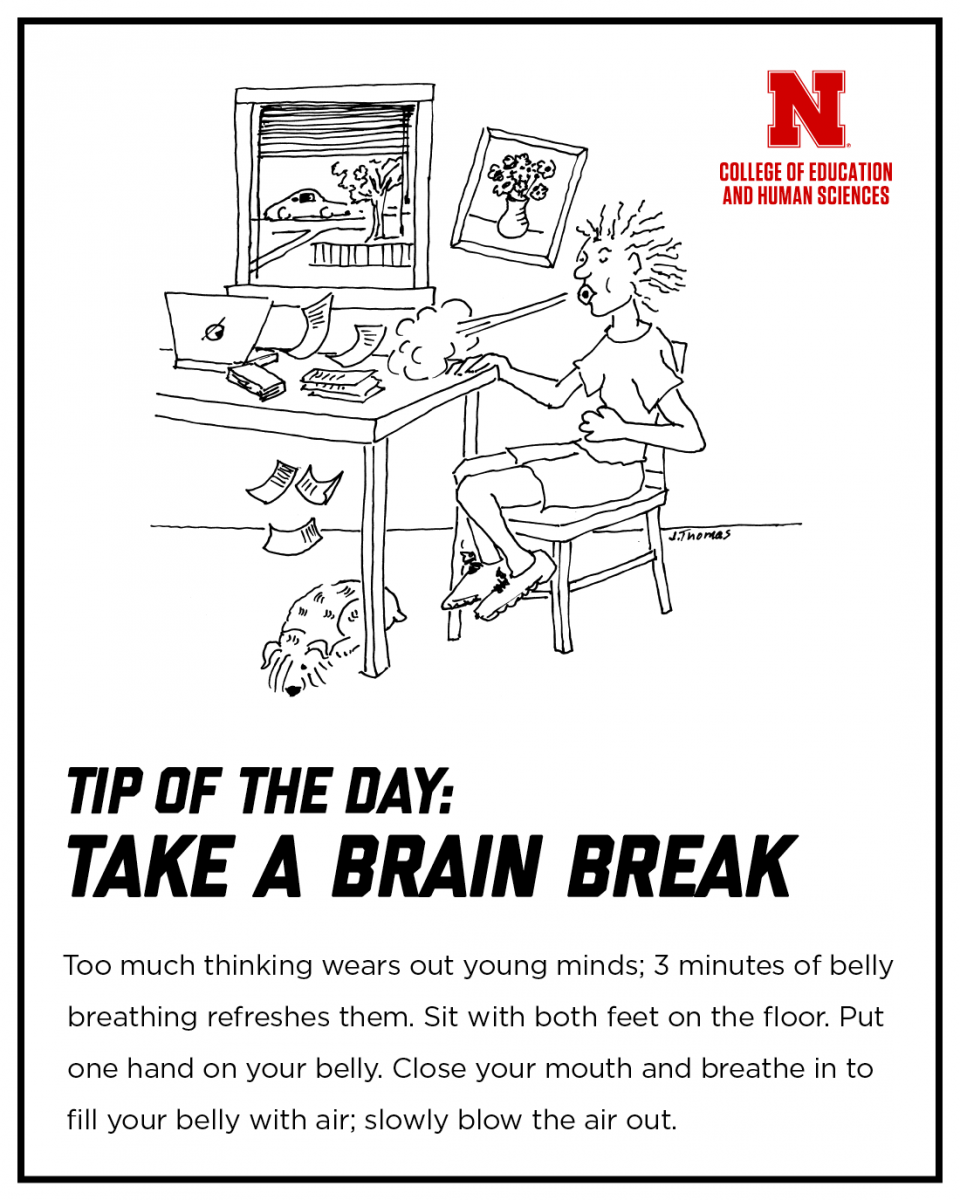
Committee on Physical Activity and Physical Education in the School Environment; Food and Nutrition Board; Institute of Medicine. (2013). Educating the Student Body: Taking Physical Activity and Physical Education to School.
Tip #8: Share Family Stories

Feiler, B. (2013). The secrets of happy families: How to improve your morning, rethink family dinner, fight smart, go out and play, and much more. New York: Harper Collins
Tip #9: Lifeline at Home
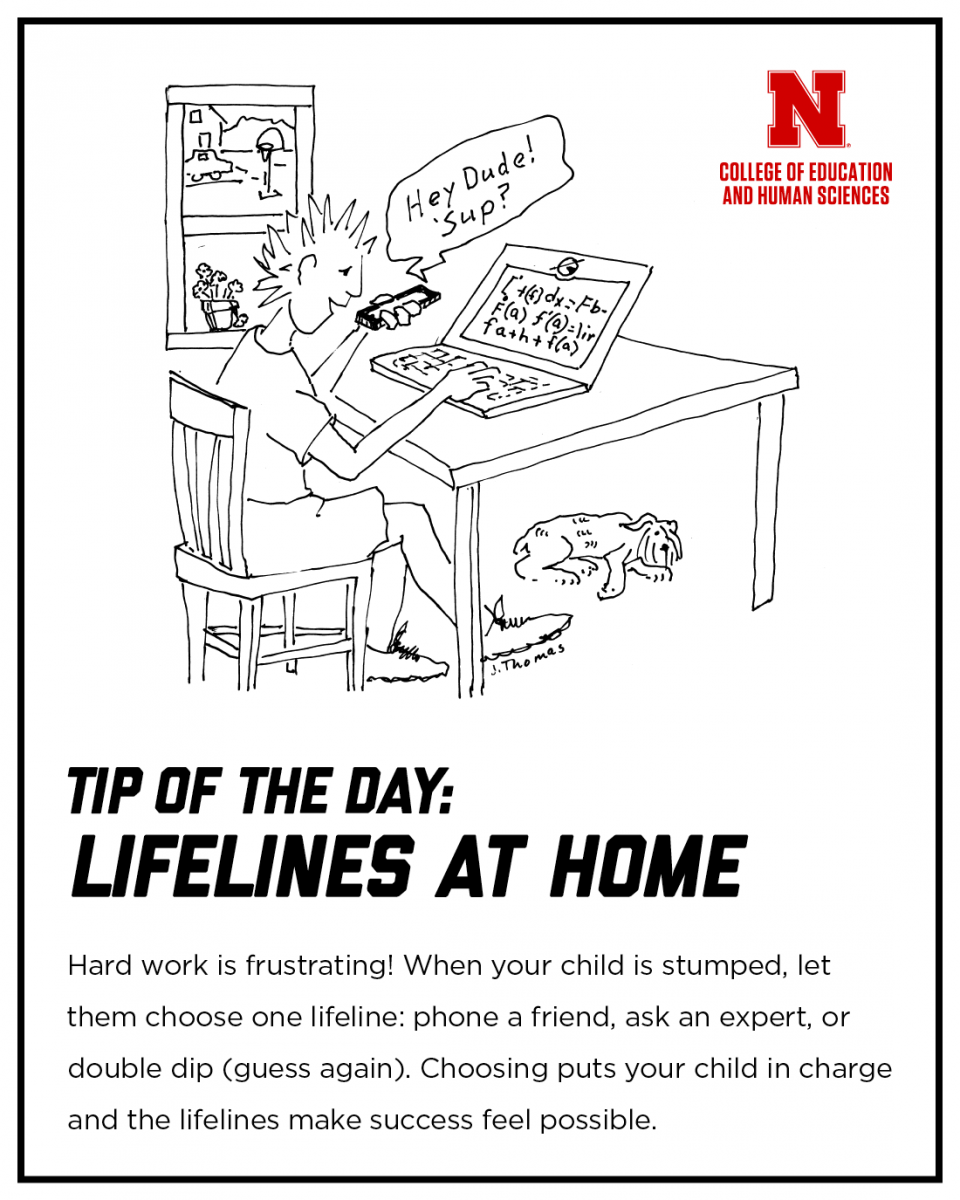
Bear, G. G. (2010). School discipline and self-discipline: A practical guide to promoting prosocial student behavior. New York: Guilford.
Tip #10: Chill the Meltdowns
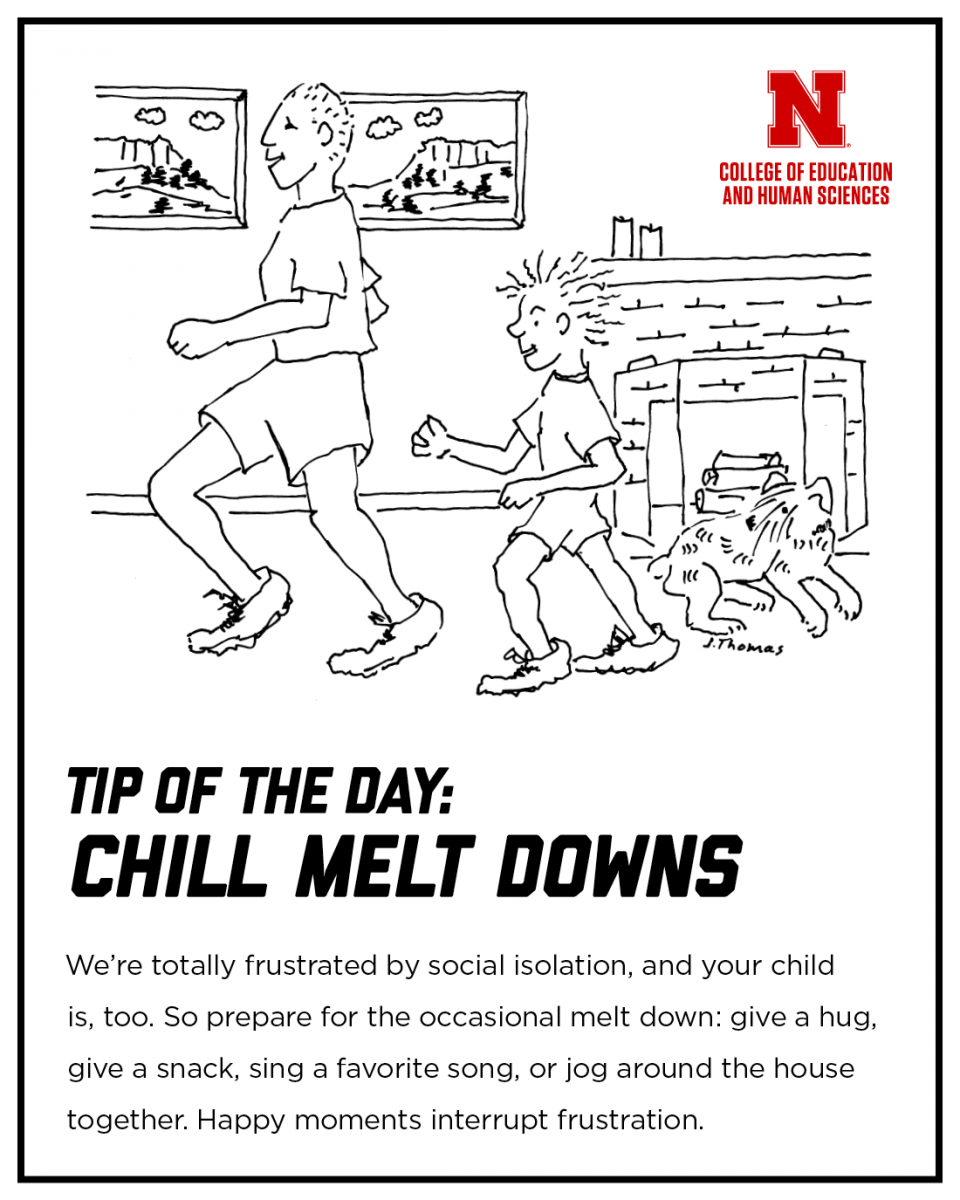
Suldo, S., & Savage, J. (2016). The well-being promotion program: A selective intervention for adolescents. In S. Suldo, Promoting student happiness: Positive psychology interventions in schools. (pp.64-86). New York: Guilford Press.
Tip #11: Imagine a Beach
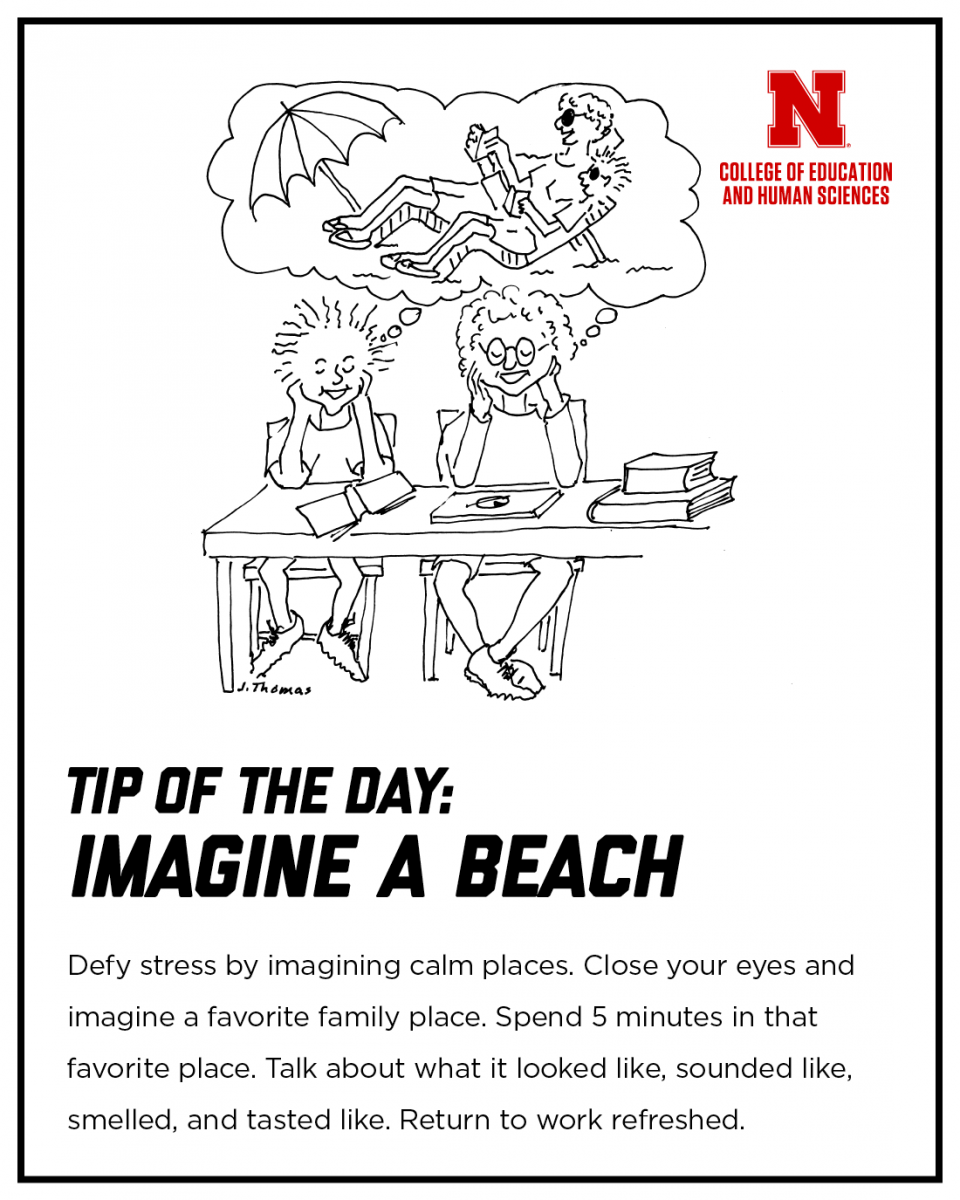
deLeyer-Tiarks, J., Gammie, L., Bray, A. M., & Moriarty, S. (2020). Relaxation and guided imagery for mind-body health. In C. Maykel & M. A, Bray (Eds.), Promoting mind-body health in schools: Interventions for mental health professionals. (pp. 173-186). Washington, DC: American Psychological Association.
Tip #12: Just Say Yes
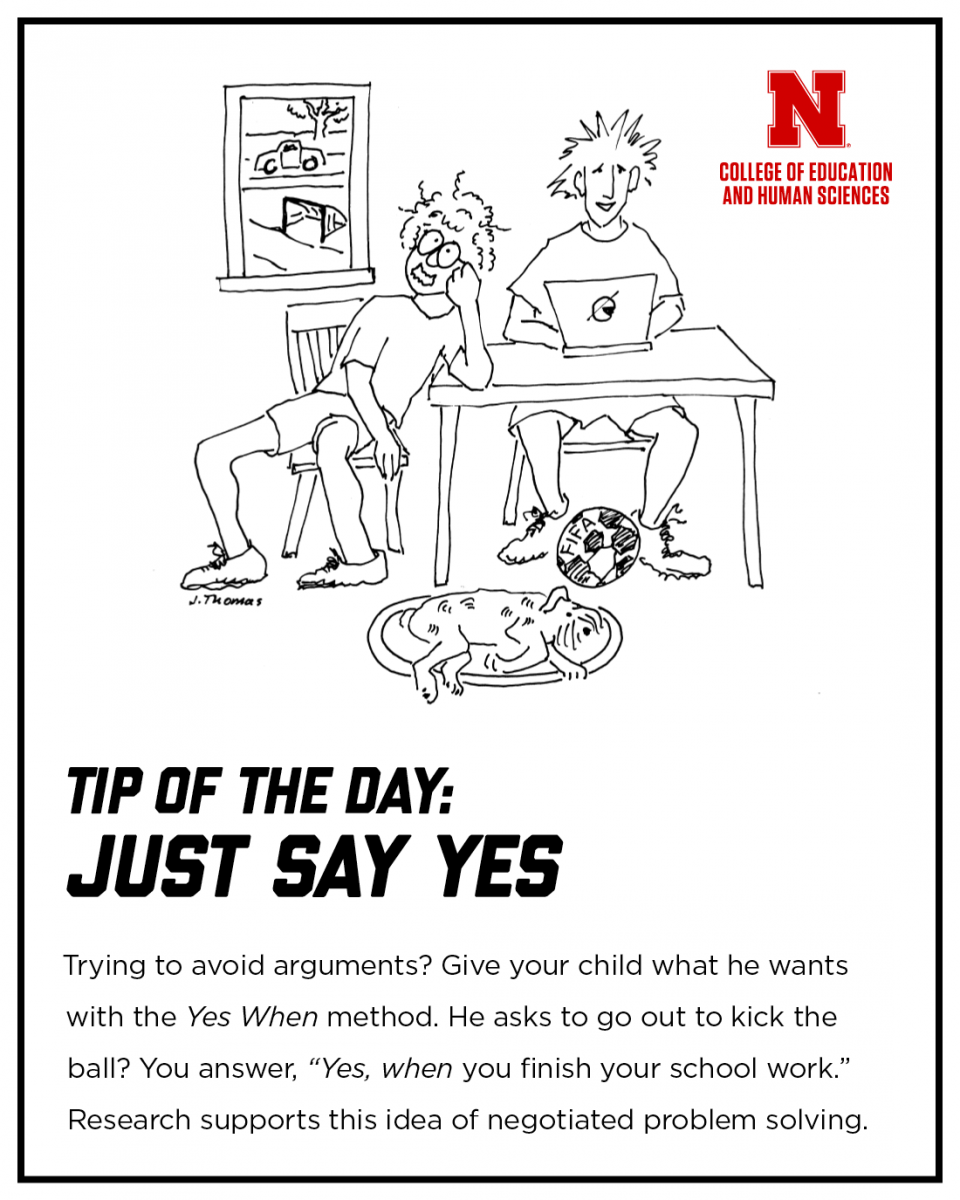
Pinsker, J. (June 13, 2019). How a negotiation expert would bargain with a kid; some tactical suggestions for managing volatile, sometimes nonsensical negotiation partners. The Atlantic.
Tip #13: Catch Them Behaving
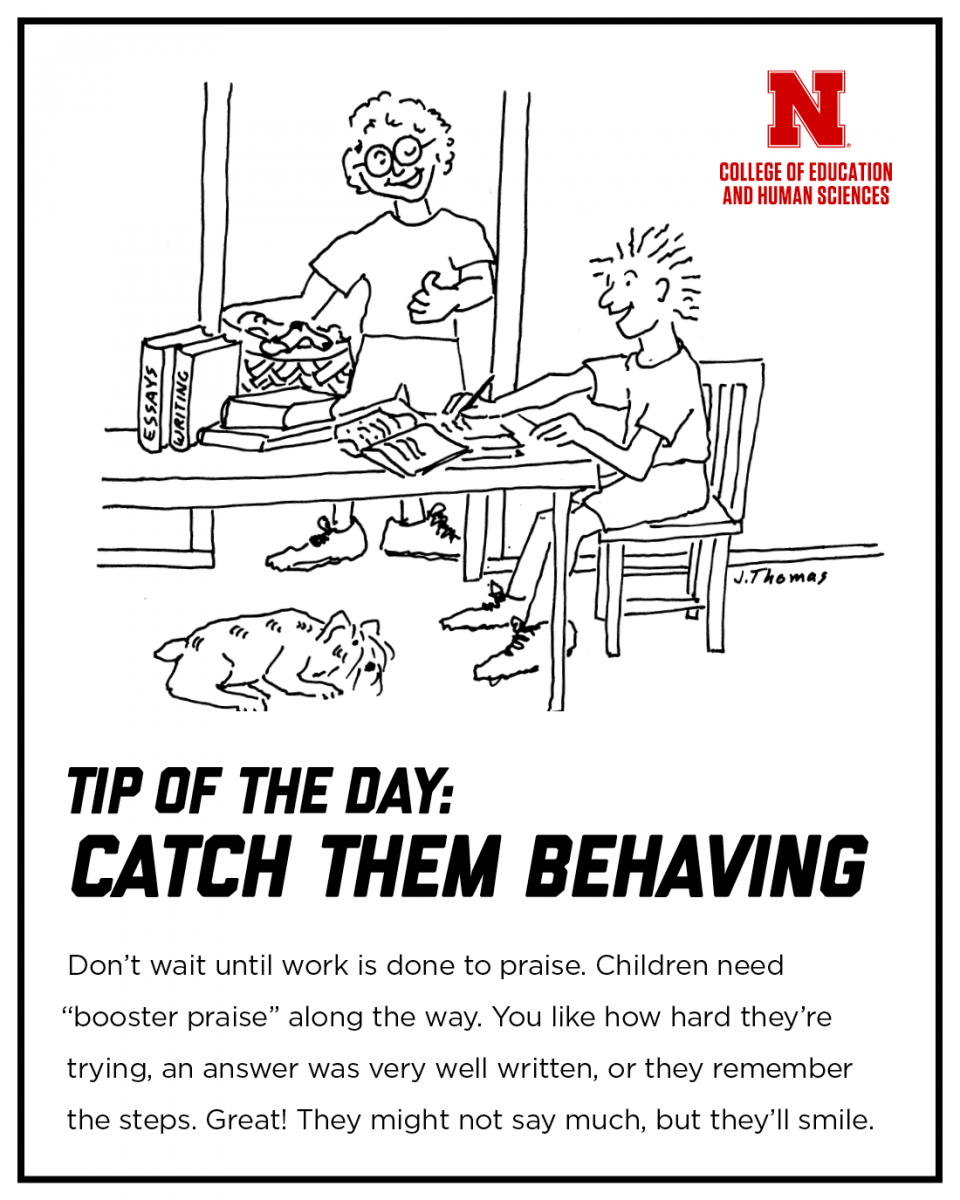
Bear, G. G. (2010). School discipline and self-discipline: A practical guide to promoting prosocial student behavior. New York: Guilford.
Tip #14: Time for Play
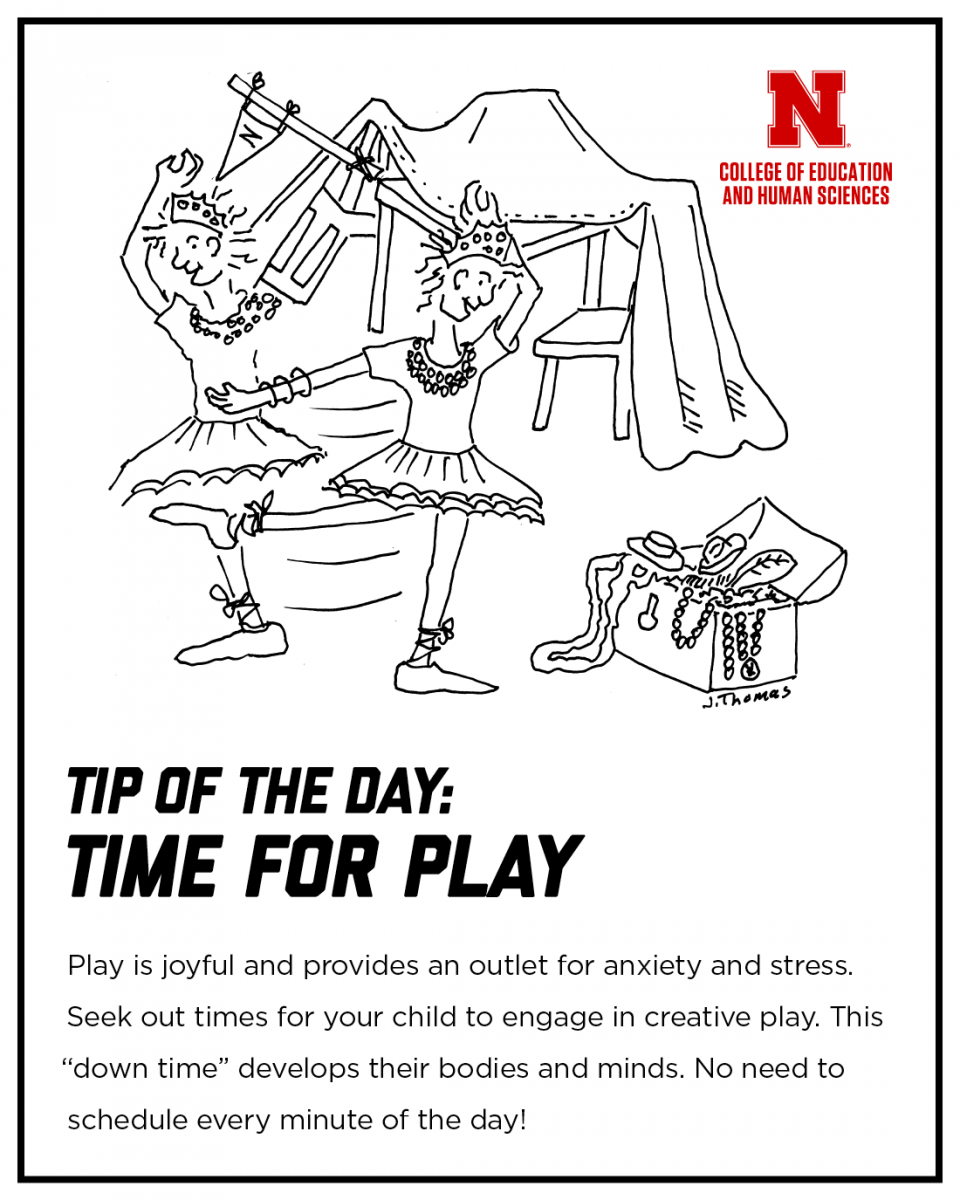
Elkind, D. (2007). The power of play: Learning what comes naturally. Philadelphia, PA; DaCappo Press
Koralek, D., Bohart, H., & Charner, K. (2015). Spotlight on Young Children: Exploring Play. Washington, DC: National Association for the Education of Young Children.
Tip #15: Notice the Questions
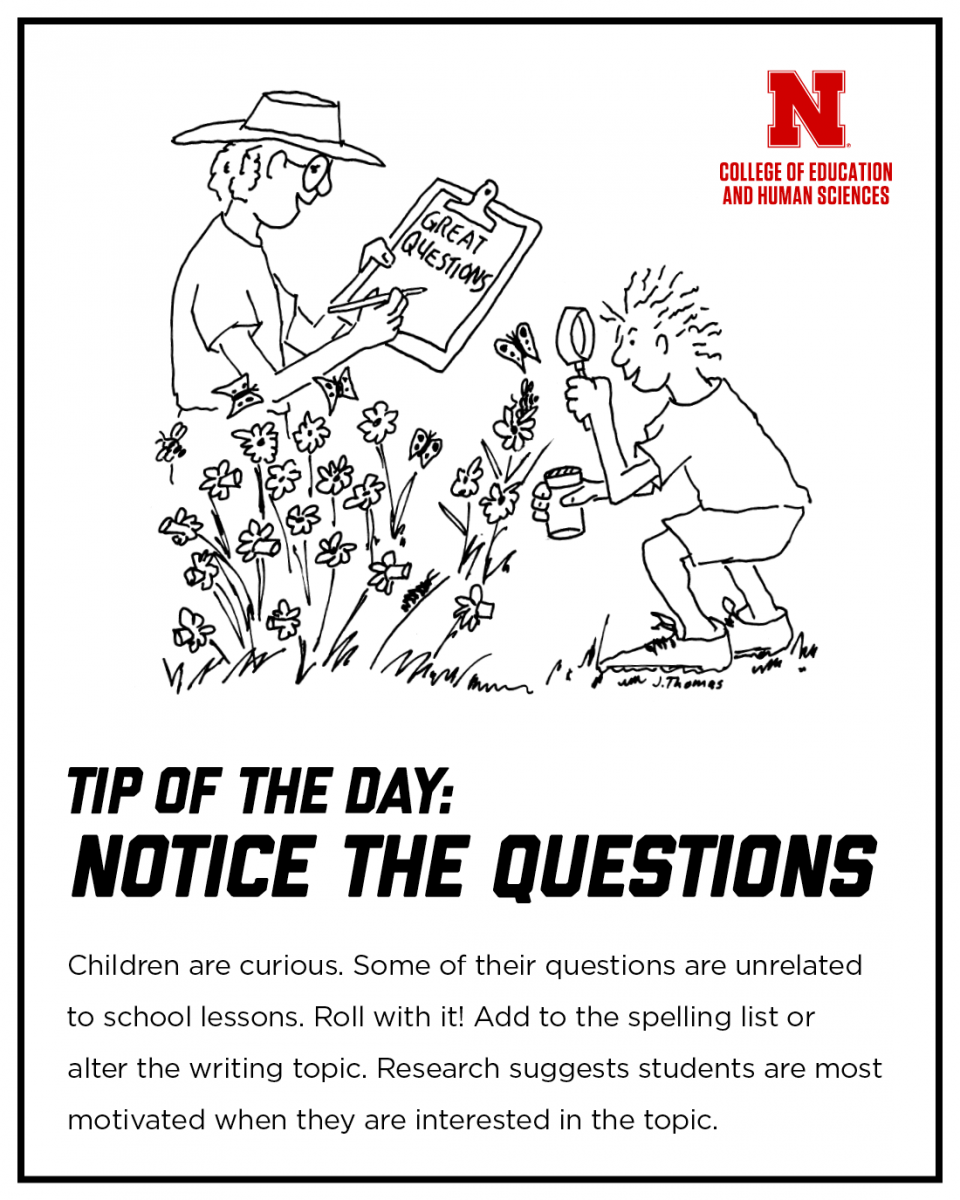
National Research Council. (2000). How people learn: Brain, mind, experience, and school. Expanded edition. Washington, DC; The National Academies Press.
Tip #16: Be Grateful
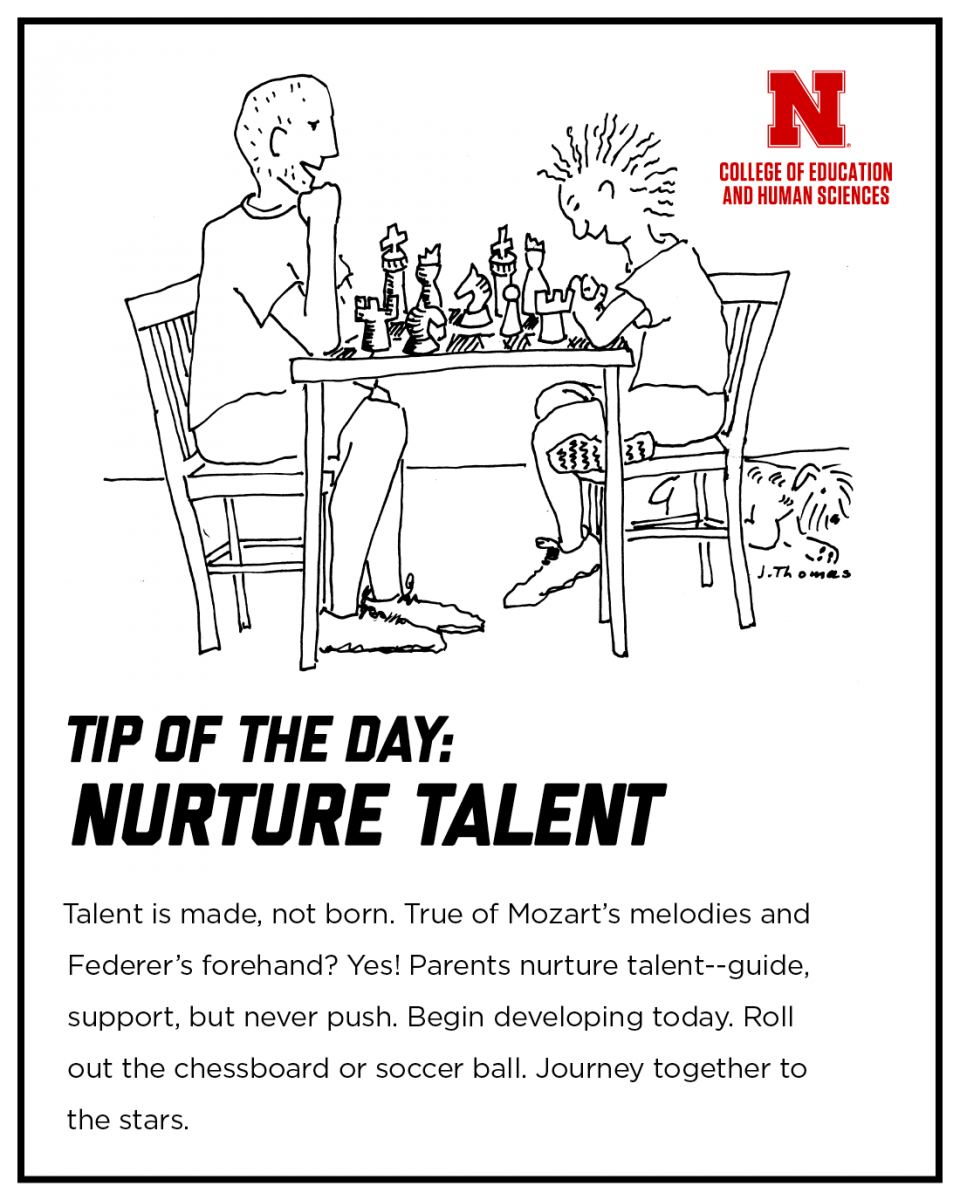
Suldo, S. M. (2016). Promoting student happiness: Positive psychology interventions in schools. New York: Guilford Press.
Tip #17: Nurture Talent
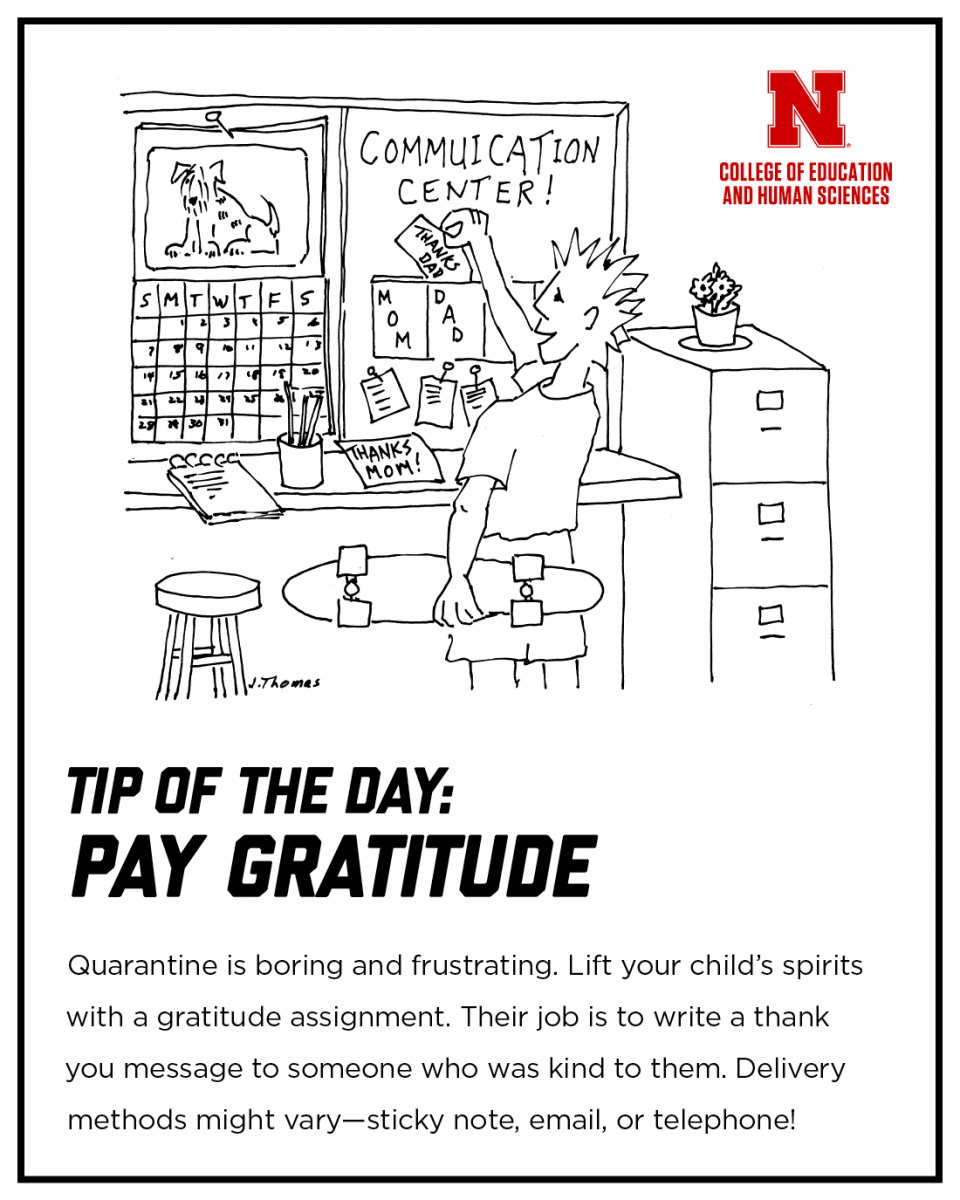
Kiewra, K. A. (2019). Nurturing children’s talents: A guide for parents. Santa Barbara, CA: Praeger.
Tip of the Day is brought to you by the College of Education and Human Sciences
Coordinated by Julie Thomas, Beth Doll, Haley Apel and Mary Thompson
Illustrated by Jon Thomas
Special contributions made by Soo Young Hong, Suzanne Kemp, Anne Thomas, Paul Springer, Tammera Mittelstet, Ken Kiewra, Aaron Johnson and Jean Ann Fischer.